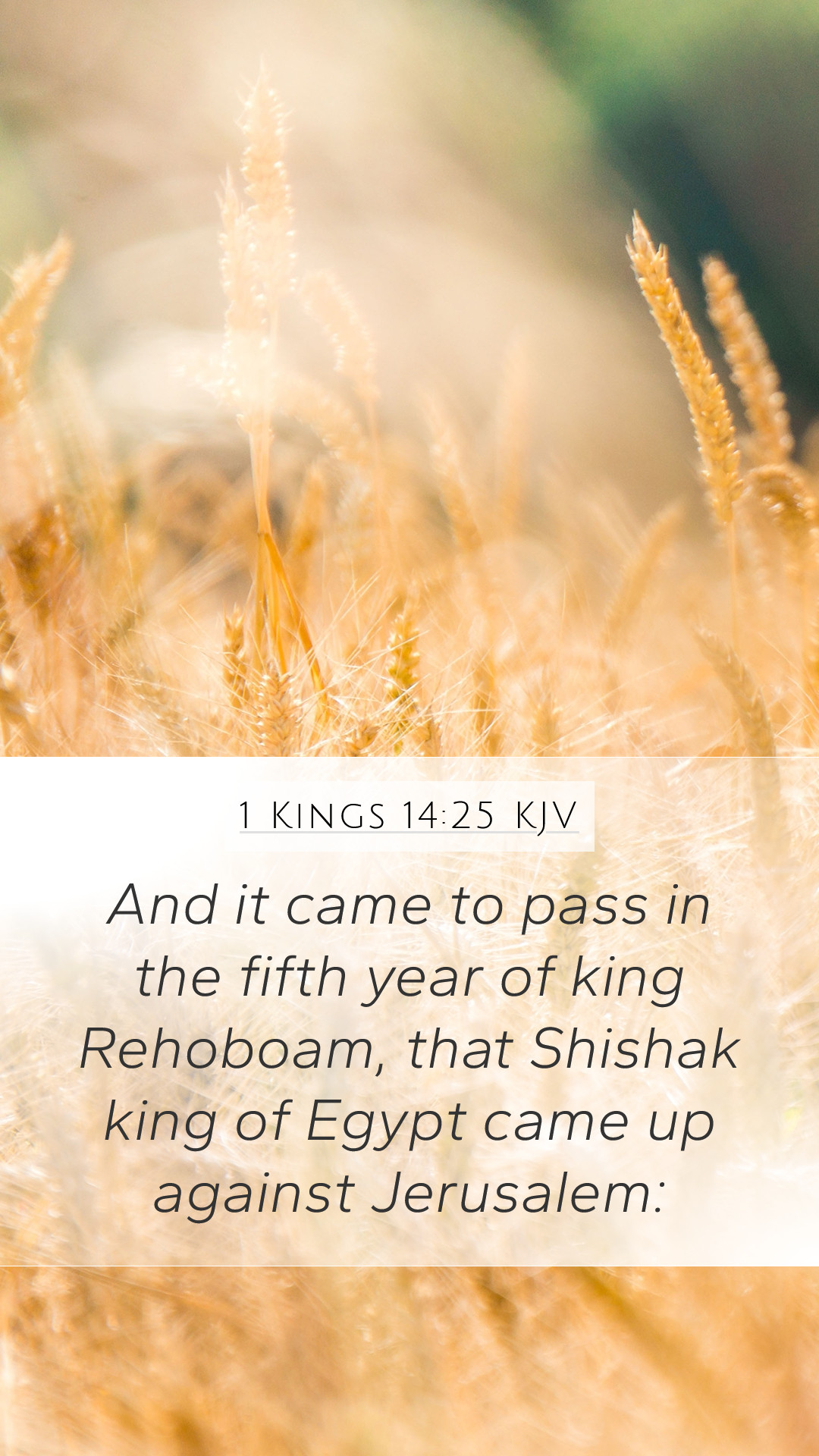1 Kings 14:25 - Bible Verse Meaning and Commentary
The verse 1 Kings 14:25 states: "In the fifth year of King Rehoboam, Shishak king of Egypt came up against Jerusalem." This verse marks a significant historical moment in the life of Israel and reflects themes of strength, decline, and the consequences of infidelity to God's covenant.
Understanding the Context
To grasp the meaning of 1 Kings 14:25, it is essential to evaluate the broader historical and theological context:
- The Reign of Rehoboam: Rehoboam, son of Solomon, is a pivotal character whose reign initiates a period of division within the kingdom. His leadership choices directly influenced Israel's trajectory.
- Shishak's Invasion: Shishak, the king of Egypt, symbolizes external threats faced by the kingdom, particularly as a result of Israel's moral and spiritual decline.
- Covenantal Consequences: The invasion can be viewed as a judgment from God for Israel’s unfaithfulness and idolatry, emphasizing the importance of adhering to divine commands.
Commentary Insights
Matthew Henry's Commentary
Matthew Henry elaborates on the significance of this verse in relation to God's providence. He suggests that the invasion serves as a reminder of God's sovereignty over nations and His justice. Henry emphasizes that the people of Israel had turned away from God, leading to this dire consequence.
Albert Barnes' Notes
Albert Barnes reflects on the historical aspect of Shishak's attack, noting the wealth of Jerusalem at this time and how it attracted foreign powers. He interprets the event as not just a military action, but a spiritual lesson about reliance on God rather than on material possessions and alliances.
Adam Clarke's Commentary
Adam Clarke provides insights into the political ramifications of the attack. He suggests that Shishak's action was a fulfillment of prophecy, highlighting the interconnectedness of divine will and human action in the narrative of Israel's history. Clarke underscores the moral decline evident during Rehoboam’s reign and its disastrous effects.
Applications of 1 Kings 14:25
This verse encourages both individual and communal reflection within Bible study groups. Understanding the impact of Rehoboam’s leadership can help contemporary believers evaluate their own spiritual decisions:
- Evaluate Leadership: Consider the principles and ethics guiding leaders today in church and community.
- Reflect on Faithfulness: Assess personal commitment to God and avoid the pitfalls of distractions and idolatry.
- Recognize Consequences: Understand that actions have consequences, particularly in the context of faith and obedience to God.
Conclusion
The study of 1 Kings 14:25 offers profound lessons on leadership, the ramifications of spiritual unfaithfulness, and the overarching sovereignty of God in history. Utilizing tools like online Bible study platforms, individuals can deepen their understanding of such verses by engaging with historical contexts, applying insights from commentaries, and participating in discussions with peers.
Additional Bible Cross References
- 2 Chronicles 12:1-12: Provides further context on Rehoboam’s reign and the consequences of his actions.
- 1 Kings 12:1-20: Describes the political division of Israel under Rehoboam.
- 1 Kings 11:9-13: Details God’s judgment on Solomon, which sets the stage for Rehoboam’s challenges.
SEO Keywords Utilized
The content above encompasses various keywords related to bible verse meanings, bible verse interpretations, bible verse commentary, bible study insights, and other important phrases that facilitate understanding of Scripture.


